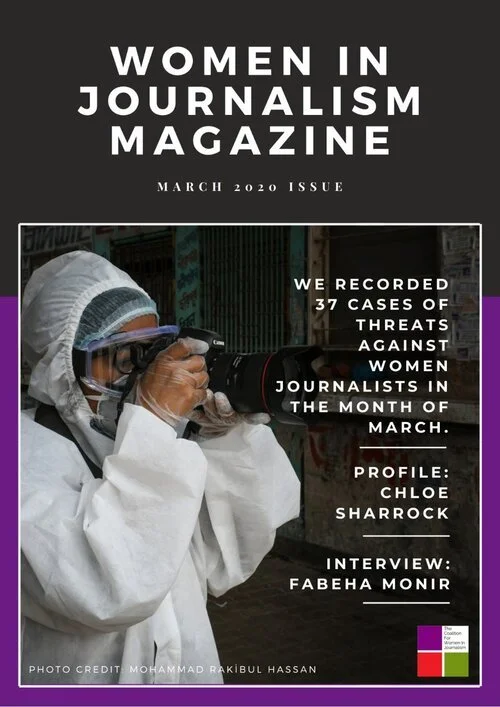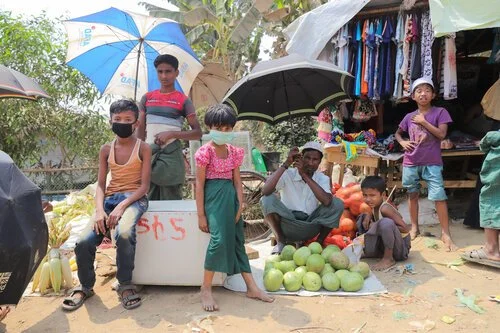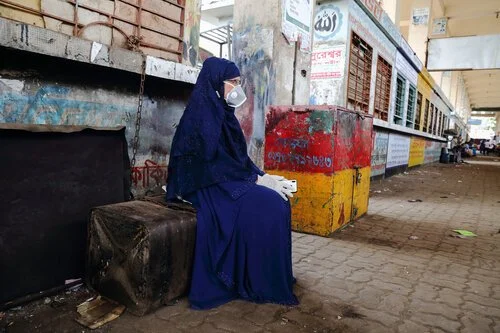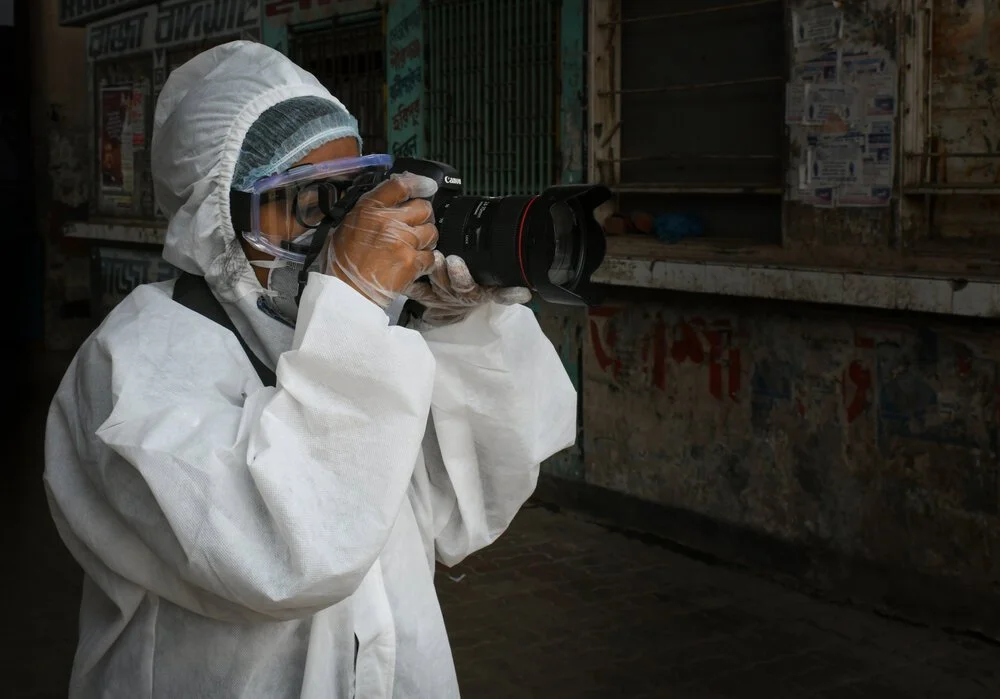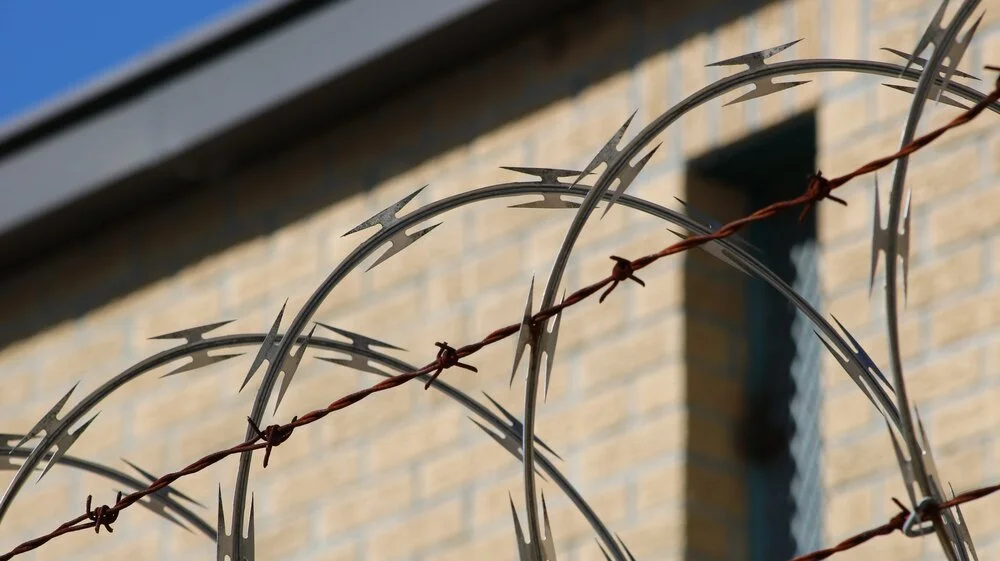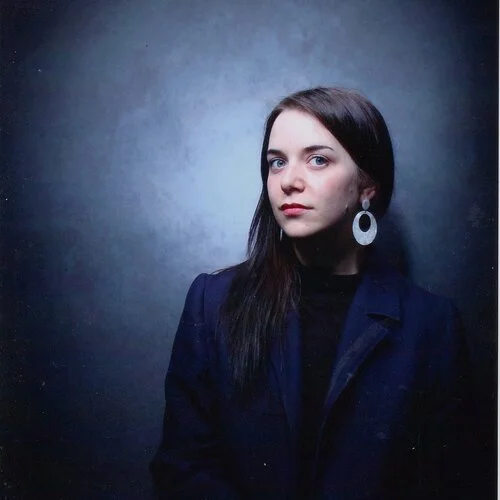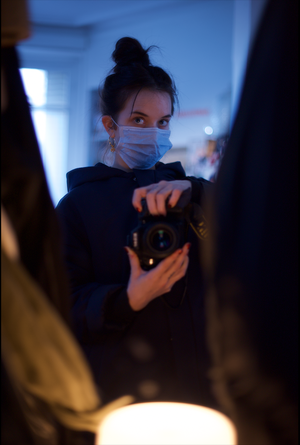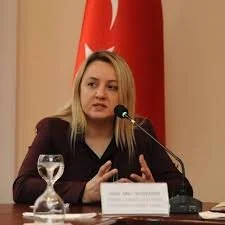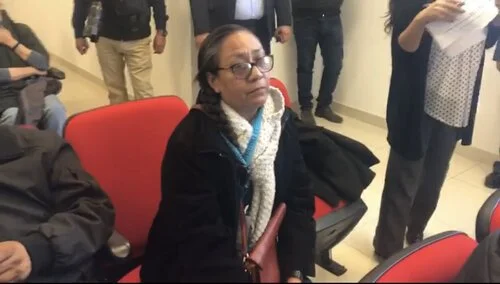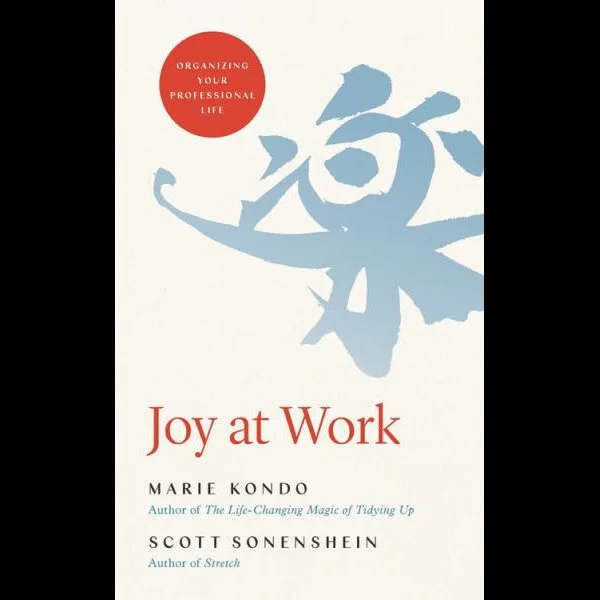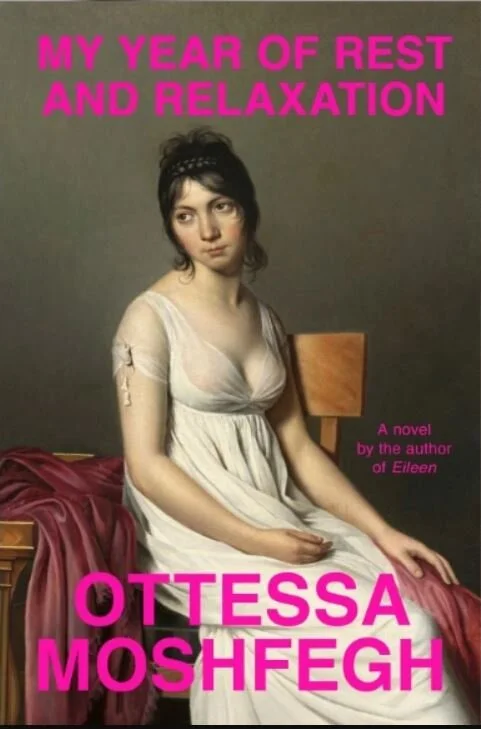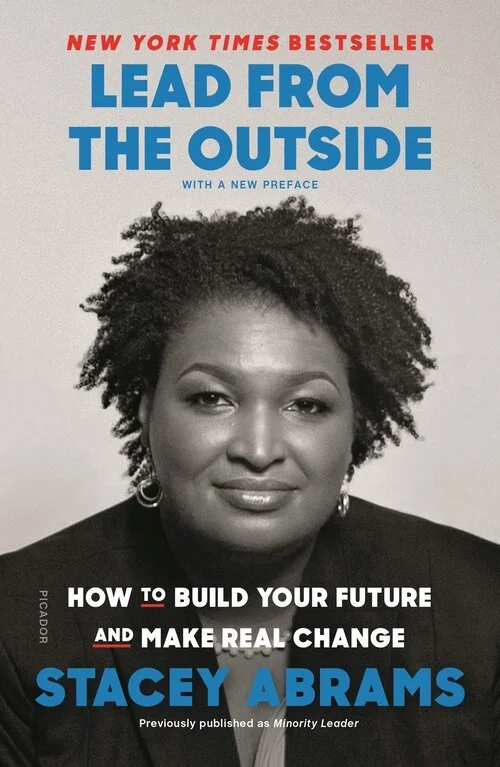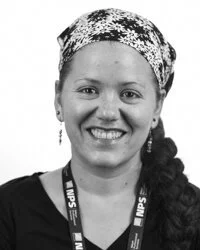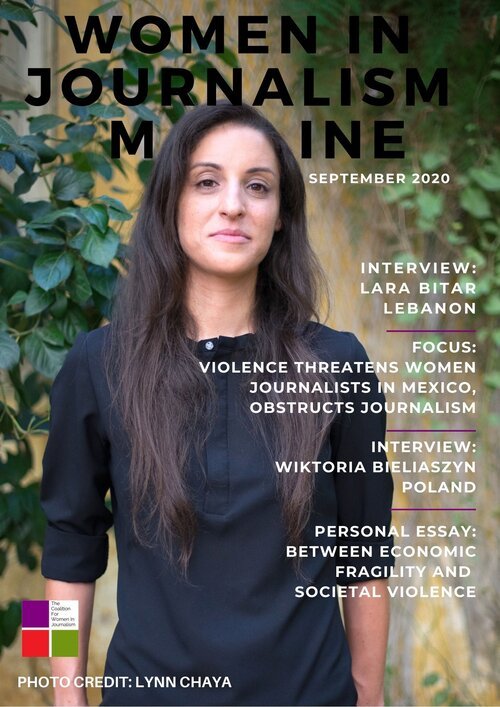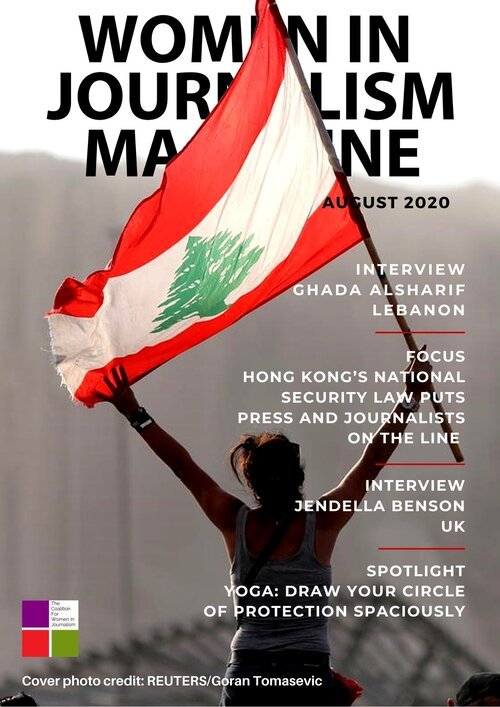March 2020 Issue
In this issue, we speak to visual journalist Fabeha Monir, have a chat with documentary photographer Chloe Sharrock, share our monthly podcast picks and reading recommendations, and feature cases of threats against women journalists. Go read.
Editor’s Note
Dear readers,
We hope you all are keeping safe and healthy. These uncertain times, no matter how tough, will pass. While we wait for this pandemic to die down, let us focus on how women journalists are bringing you the stories at this very incredible time.
In this issue we are focused on Covid-19. From the frontline we highlight the incredible work women journalists have been doing from difficult corners of the world to bring you human stories and news updates on the pandemic. We interviewed Bangladeshi photojournalist Fabeha Monir to understand how she is covering the pandemic from Dhaka. We also spoke with French photojournalist Chloe Sharrock, who shared with us how she has been coping with the pandemic in her home town, where she usually spends her downtime. Our Turkey coordinator Damla Tarhan takes a look at the state of women journalists locked inside Turkish prisons. Our global coordinator Luavut Zahid writes about how women journalists in Pakistan are grappling with the changing news cycle.
While you're here, also take a look at Covid-19 resources page on our website, with helpful content for journalists and newsrooms across the world. It features our map that tracks over 150 women journalists who are covering the global pandemic from different countries around the world. We encourage newsrooms and readers to share this map and find women reporters to hire and follow the coverage. We are speaking to journalists everyday to understand their experience covering Covid19 related stories and how they are keeping safe while at it.
Women journalists can find a list of funding and grant options to get through this time.
Thank you,
Kiran Nazish and Rabia Mushtaq.
Index
Interview - Fabeha Monir
Fabeha Monir works as a visual journalist and is based in Bangladesh’s capital city Dhaka. Her body of work is largely focused on stories exploring the refugee crisis, gender violence, migration, social development and issues of marginalized communities.
Fabeha’s storytelling has a human aspect to it. The way she intimately conveys the stories of people and communities through visuals is a testament of her diverse portfolio. She has covered various emergencies in the past, which include reporting the floods, cyclones, earthquakes and fire tragedies. Fabeha is now keeping a close watch on the coronavirus outbreak in Bangladesh. The Coalition For Women In Journalism got in touch with Fabeha to ask about her experience of covering COVID-19. Scroll down to read more.
CFWIJ: Tell us about your experience of covering COVID-19 in Bangladesh so far?
Fabeha: This is everyone’s fight now. The fear and grief that people are holding is contagious too. I have covered all major disasters that hit us in the past, but nothing like this before. When we covered cyclones, floods, fire tragedies, earthquakes, violent protests, I knew that I might lose my life in any of those events. None of that bothered me much because there was no chance of others suffering because of me. Seeing people suffer, face isolation and fight a deadly virus is unimaginable.
As a female journalist, I have immense access to the lives of women in our part of the world. Violence against women has increased, homeless women and children are in greater danger, transgenders, sex workers, and the refugee community are suffering from this crisis. I am not on the ground to just report on the deadly deaths and diseases. We need to continue our reportage highlighting the fight of the vulnerable who have no access to isolation or safety. In any system of oppression, the most vulnerable will always suffer the most and be heard the least. This is why we have to continue our job on the ground.
What is the situation of coronavirus cases in Bangladesh?
It takes a long time for us to understand that we are all in this fight, together. In a city of 20 million inhabitants in Dhaka, isolation is an impossible word. However, a good sign is that the streets are now silent and empty. With a nationwide shutdown of the transport system after announcement of general holidays as part of desperate efforts to control coronavirus, Bangladesh has apparently locked down its 160 million people. Unfortunately, it has taken the government far too long to act seriously, closing down flights, schools, businesses and public gatherings. Bangladesh has 39 known cases with four confirmed deaths so far.
With the number of Covid-19 patients rising in Bangladesh, healthcare professionals fear they are compromising their health in absence of proper and enough PPE compared to the developed nations. In reality, hospitals in Bangladesh have only 1,169 ICU beds in total against a population of 160 million. We are worried for the vulnerable group of our society who have no access to clean water, food, shelter. The part of the public that is at greater risk, and for those who might be affected by wealthy people hoarding supplies that the underprivileged folks might not be able to access as the lockdown continues to worsen.
PHOTO BY FABEHA MONIR
Are journalists facing restrictions by the government in terms of coverage?
So far, our government is very open regarding the coverage. I have received cooperation from all sources in particular. Everyone is fearful in the given circumstances. Our security forces are ensuring cooperation and a very limited number of female journalists or photographers are out on the ground. I feel that is also another reason why I am being appreciated and receiving support. It’s different now because when we cover protests or other events, law enforcement agencies have a rather hostile relationship with the media; but now, we are all united and performing our duty, knowing every well that any of us can face the worst at any given time, we are on the front line of danger collectively.
What kind of on-the-ground challenges are you facing?
I have to practice and remind myself all the time to maintain physical distance while working on-the-ground. As a journalist or photographer, I tend to work very closely with people. Now I have to do more phone interviews, take photographs from a distance. Also, stay calm and focus on what's important to cover without rushing onto everywhere. Wearing the protective gear on duty and breathing in it is hard, while going through the process of disinfecting myself every other minute is also scary.
PHOTO BY FABEHA MONIR
What is the situation like for you as a journalist in terms of logistics, particularly with respect to the lockdown imposed in Bangladesh?
Many of my freelance journalists and photographer friends are out of work now. This time is tough because storytellers from the global south are always struggling financially. Many of my works and assignments have been canceled and I might be without income for the foreseeable future, the financial stress for me and many of my colleagues worldwide is real.
“Many of my freelance journalists and photographer friends are out of work now. This time is tough because storytellers from the global south are always struggling financially. ”
What steps are you taking to keep yourself safe and healthy while reporting on the ground. Do you have safety gear for that?
Without safety gear, I cannot imagine taking one step outside to report. After returning from work, the process of disinfecting demands a lot of time and stress but the fight is not to save myself alone. It is to ensure the safety of people around me and everyone that I encounter on a daily basis. One of the doctors told me that now we have to save ourselves for the sake of saving others, for the sake of saving our loved ones, this is what we have to remind ourselves every time we work on the ground.
Coronavirus coverage has taken a toll on several journalists across the world. What are you doing to focus on your mental health in the midst of reporting?
The most difficult part is waking up everyday with a fear of separation and loss. Time pauses for us but we are restlessly fighting without knowing what will happen next. It’s frantic that we cannot make any plans anymore, we do not have any control over our lives. Without any warning, our lives have now shifted from order to chaos. But the astonishing part of covering this historic time is the act of solidarity, we are more united mentally and spiritually than we have ever been before, though we are bound to put ourselves far apart from each other physically. But that is where our uniqueness lays.
We haven’t given up hope. While closely working with health professionals and security personnel, I have learned something extraordinary that we have to continue our duty with hope, sanity, and aspiration. If we let it ruin our hope, there will be no way we can come alive out of it.
How Female Journalists Are Tackling The Fallout From Covid-19
By Luavut Zahid
This article was originally published in DAWN newspaper.
Female journalists are now confronted with a whole new set of problems in addition to the issues they have always faced.
Journalists are dealing with an unprecedented level of difficulties since the Covid-19 outbreak. The spread of this pandemic has had a deep impact on everyone in the field — whether they are covering it or not. After talking to a few female journalists, it was clear that they definitely have it worse.
PHOTO CREDIT: MOHAMMAD RAKIBUL HASSAN
While developing Covid-19 resources for The Coalition For Women In Journalism, I spoke to several female journalists in Pakistan about how they are covering the pandemic and found that they are now confronted with a whole new set of problems in addition to the issues they have always faced.
Fly to work?
Mobility has always been a limiting factor when it comes to how far female journalists can go in the industry. Karachi-based Ambreen* says she has faced transport issues, even before the Covid-19 threat.
"My organisation doesn’t provide transport to everyone. I don’t own a car so I’ve been dependent on Uber and Careem or Airlift — all of which have suspended operations because of the pandemic. How am I supposed to keep going to work?” she asks.
With the pandemic wreaking havoc, both the Sindh and Punjab governments have imposed restrictions on public and private transport — so even if one were to have a car, it may not be of much use to many.
"We have no press cards, so how are we to go around during a lockdown?" asks Aliya* a journalist based in Lahore, noting that even the most basic of resources are not made available by newsrooms in general.
Competition for Covid-19
Several Pakistani newsrooms are notorious for being — without sugar-coating it — filthy. Some I’ve personally worked in are breeding grounds for many ailments, with the current coronavirus a new entrant into an old cesspool.
And while some newsrooms are doing a better job of giving their workers protective gear and ensuring physical safety, there are others that fall short by mountains. "On a good day, there are rats running around in my office. What possible sanitisation can they ensure when they have never been able to get rid of rats? I’ve had a UTI thrice working here," says Urooj*, a Lahore-based journalist said.
There is also a lack of balance in terms of facilities available to female staffers. What seem like simple, small things are making a huge difference in current times. For instance, Ambreen's workplace has only one toilet for 10 or more women. "To be honest, our office is generally disgustingly unclean — this is not just a pandemic issue," she says.
Pandemic? What pandemic?
For some female journalists simply getting permission to work from home has been an uphill struggle. Editors and managers aren’t ready to take the disease seriously. Aliya says her editor has refused to take the pandemic seriously and keeps asking the staff to "wait till things get worse".
"Our entire team had to aggressively push for the work from home option before we were told we could do it. Even then, we had to be at work during production days. Then the Punjab government announced the lockdown and some of us insisted that coming to work at all would endanger our families. Even in such times, unless you push and push and agitate there is no initiative on part of the management to take concerns, especially health-related ones, seriously," she says.
Where editors and superiors are empathetic, the organisation’s human resource department may not feel the same way. "In my case, even though my boss was understanding about my need to work from home, the organisation was not," Ambreen says, noting that even though some have been allowed to work remotely, there are staffers who are still required to go into work.
"I wasn’t allowed to work from home until I developed symptoms. It wasn't Covid-19 but it did the job. There were no precautions in place for safety even until that point," Ambreen says, adding that it took a false alarm to jolt her newsroom into some action.
The apathy being shown by those running the newsrooms is going to end up contributing to the spread of this disease. "My husband is a page marker in another organisation — even though I am at home, he's still out there for work. How do I stay safe?" Ambreen asks.
There is also the looming fear of what happens when the lockdown ends and everyone returns to work. "Are these spaces now cleaner than they were before? Is the virus still there? I have a lot of anxiety about it all," says Urooj.
"We’ve been given no gear for the virus. None at all. And there has been no training on how to stay safe. Whatever we’re doing is our own effort," she adds.
Even offering a plan that would have helped maintain efficiency while working from home was ignored in some cases. Solutions and technical options were ignored, and female journalists were made to feel as though they wanted to "slack off".
"We as a team are experimenting and helping one another figure things out. The management, I understand, has never faced such a situation, but a sufficient enough time has now passed for them to formulate proper strategies," says Aliya.
Managing stress
Urooj said she’s finding it hard to deal with the stress of the situation. "I am putting on a brave face but I haven’t slept properly since the first case was diagnosed in Lahore. Even though we’re journalists, social media is taking a toll on us.
"I’m one the verge of resigning. If they can’t give us any safety then I just don’t want to work," she says.
"We were already operating with limited resources and with the surge in cases it’s made getting stories even more difficult precisely because it could potentially put the reporter at risk. It is emotionally taking an altogether different toll on us. After we concluded a special report recently, I couldn’t sleep for two days because I was anxious about my reporters. I don’t know what they must have gone through — and this is while struggling to get our own newsroom to take the issue seriously," says Aliya.
Even journalists whose organisations have been helpful and supportive have not been able to escape the stress and anxiety caused by Covid-19. Ramsha, a Karachi-based journalist, says working from home had made some things easier. However, despite its benefits, it can be taxing.
"There are definitely more distractions at home. It’s hard to disconnect from one’s surroundings and family — and hard to disconnect from news when I’m not working — it’s overwhelming. It’s all new right now. I’m exploring and learning."
To manage stress, she’s started doing yoga at home. "But I haven’t been regular because of fatigue. I feel overworked even if I am putting in less hours," she adds.
Another issue is that for many female journalists, working from home means working on more than their jobs. They have to multitask between duties at home and their jobs.
Urooj says being at home has meant added pressure to be ever-present for housework while having to tackle with office work. "And we don’t really have a culture of working from home, so people find it hard to communicate when they’re occupied," she adds.
Reporting woes
While some newsrooms are lagging behind, others are evolving with the pandemic to ensure that their people remain safe. Ramsha says Covid-19 has changed things in many ways. "I work for a newspaper and things have gone remote now all thanks to technology. People in the industry are not tech savvy so this has made them come out of their comfort zone and explore digital," she explains.
However, even if you have a supportive organisation, there are several other issues that the Covid-19 has thrown at journalists. She says that for anyone reporting, the biggest challenge is misinformation. "The current situation is a test even for fact checkers. There is a lot of false information out there and too many updates — it’s hard to keep up," she adds.
And journalists who are working for organisations that have already been beaten down have it much harder. "We have our backs against the walls in terms of resources. Fact-checking and communicating everything has been harder," she says.
Despite the many, many problems that they face in the industry, most women journalists do not want to quit.
"At least they are paying us… even if it’s with a two-month delay," Ambreen says and laughs. And unfortunately, that is the clincher, the industry's standards have fallen so low that journalists are now prepared to tackle a global pandemic on a personal level so long as they're paid.
**Names have been changed to protect identities of the persons.*
Imprisoned Women Journalists At Risk Amid Covid-19 Outbreak In Turkey
By Damla Tarhan
With over 27,000 confirmed coronavirus cases in Turkey and more than 500 deaths recorded so far, fears for the safety of imprisoned journalists have increased in the past few weeks. Authorities in Turkey have long been notorious for their treatment of women journalists inside jails and as of now, four women journalists - Ayşenur Parıldak, Hanım Büşra Erdal, Hatice Duman, Hülya Kılınç - have been arbitrarily held for their journalism inside the country’s prisons.
These journalists are not only vulnerable to the authorities’ unjustified demeanor, but remain at a larger risk of contracting the novel coronavirus, given the not-so-satisfactory health facilities inside its prisons.
Instead of ensuring the safety and hygiene of its prisoners, Turkish authorities have instituted a clampdown on news regarding Covid-19. Many journalists, including women, have borne the brunt of being persecuted for their coronavirus coverage.
On March 16, Ebru Küçükaydın - a general publication coordinator of news website Haberimizvar.net - was taken into custody from her home in Antalya for publishing a story about the coronavirus. Even though she was released after her statement was recorded at a local police station, the news was subsequently taken down from the website. Read our statement here.
On March 31, an investigation was filed against writer and columnist Nurcan Baysal for "threatening to incite the public to enmity and hatred" because of her social media posts and two articles published on Ahval - a Turkish news website. While her post criticized the government’s action during Covid-19, the articles shed light on the lack of seriousness around the life-threatening pandemic that brought the world to a halt. Nurcan was finally released by the court after she testified in her defense.
Sadiye Eser, a Mezopotamya Agency reporter, was arrested for “being a member of a terrorist organization in December 2019, just like the four currently held journalists. She was released by a court in Istanbul on March 26, albeit with conditions of judicial control and adjourned the hearing of her case until October 15.
On March 17, the Turkish government postponed ongoing trials until April 30 because of the outbreak. These trials are expected to be further delayed if the situation around the pandemic worsens. Meanwhile, only prisoners’ trials can be held at the courthouses.
Even though many women journalists in Turkey have been released this year, four are still languishing inside jails in the midst of inadequate conditions. Several remain at a risk of being taken into custody for covering the coronavirus outbreak.
Not long ago, we released a statement condemning the inhumane conditions inflicted on the Mezopotamya Agency reporter Ruken Demir. She apparently wrote a letter to her brother wherein she mentioned being fed unhealthy and unhygienic food in the prison. Ruken was also not allowed to read books or newspapers, and was later banned from writing letters as well. After spending 115 days in the prison on charges for “carrying out activities on behalf of a terrorist organization”, she was finally released on March 6.
Following Ruken’s horrific account of treatment in Turkey’s jails, the thought of imprisoned women journalists being safe and healthy is simply wishful thinking. All the women journalists held inside Turkey’s jails are at a higher risk of contracting Covid-19. Most of these journalists are over 30 years of age and fall in the high-risk category. The prisons’ state of hygiene, heating system, conditions of the dining hall, and the infirmary equipment are just a few things that need to be inspected in order to ensure the safety and health of the prisoners.
Turkish journalist Sadık Topaloğlu, who was recently released, also spoke about the state of journalists locked behind bars. He said how the conditions inside jails leave them vulnerable to health risks. Sadık shared his views in this video deeming the existing precautions inadequate to continue the fight against coronavirus.
CFWIJ got in touch with lawyer Ülkü Şahin who usually deals with cases involving journalists. When discussing the state of prisons during the ongoing pandemic, she pointed out that it is not fair to keep journalists behind bars.
“Journalists being imprisoned on charges of “membership of a terrorist organization” and “making propaganda for a terrorist organisation”, because of their articles, news stories, social media posts, speeches, and photographs, is simply unjustified - none of them are violent actions. However, the Turkish government equates these with many violent crimes such as crimes against sexual immunity and drugs in the enforcement package in the parliament. As such, it was once again confirmed that the government saw journalists who hold a pen more dangerous than criminals who hold a gun,” Ülkü said.
She added that in a possible legal arrangement, the criterion of violence should be considered and the government should secure justice.
“Following the current conditions of our prisons and the rapidly increasing potential of coronavirus, we should not only rally towards their freedom of thought, and right to freedom and security, but also their right to life. According to the regulations by the UN and the Council of Europe - of which Turkey is a member - the state has an obligation to provide security of individuals whose freedom is taken away. We urgently demand that all the journalists are released. Necessary measures for hygiene should be ensured. Journalists who are behind bars should also be allowed to stay at their homes too,” Ülkü shared when talking to CFWIJ.
The Coalition For Women In Journalism stands with all our fellow women journalists who have been jailed for their work as journalists in Turkey. During this global pandemic that has paralyzed the entire world, it is pertinent for Turkish authorities to release all the journalists and allow them to stay at their homes, to ensure their health and safety. The government must take necessary precautions to prevent the spread of this outbreak, especially inside jails and allow the press to cover the pandemic in a fair and transparent manner.
CFWIJ Launches Covid-19 Resources
The coronavirus has infected more than 1.5 million people and caused almost 90,000 deaths. The global scale of this pandemic has forced countries around the world to take serious measures, including closing borders and imposing quarantines. This has increased multidimensional challenges to the journalists who are reporting on this story, from all across the world. Whether they report in quarantine, from behind a desk or from the street covering life at large, the risk of safety for these reporters demands a vigorously thoughtful approach.
The Coalition For Women In Journalism stands in solidarity and support with all journalists covering this massive story today. As a support organization for women, we have developed resources and tool kits that any journalist can consult. You can find more here.
Covid-19 Press Freedom Watch
Several countries are instituting a clampdown on news relating to Covid-19. We are keeping an eye on the situation and documenting any threats that women journalists may be facing because of their coronavirus-related reportage. You can find our statements here.
We Want You To Take Care
We have spoken to industry experts, women journalists and medical professionals to develop simple easy to follow guidelines for journalists covering the pandemic. You can print these as flash cards and keep in your reporting kit as a reminders. Find a complete stack of guidelines and self care tips here.
Pro Tips From Women Journalists On The Frontline
Every day our team is speaking to women journalists covering COVID19 from the frontlines or from their make-shift home offices. Improvising and innovating new ways to tackle the story. Meet these women journalists here.
We Are Thinking Of…
We are very sad that #journalist #MarieMercader succumbed after contracting #Covid19. Our condolences go to her family, peers and friends. Our heart goes out to all #women journalists covering this story around the world. Read our full statement on our website, here.
Would you like to share this map with your network?
In these difficult times some of the most urgent & detailed information is brought to you by women journalists. Since early March, the Coalition For Women In Journalism has been mapping locations around the world where women journos are reporting on #Covid19. Find our map and more here http://womeninjournalism.org/covid19
Covering The Pandemic In The City Of Love - Chloe Sharrock Shares Her Experience Unveiling Covid-19 In Her Photo-Reportage
Chloe Sharrock is a documentary photographer based in Paris, France. She is also the founder of an association Alhawiat - dedicated to share stories of women in the conflict-ridden countries of the Middle East.
Her work, published in several international publications, is largely focused on women’s rights but has also explored religion. While Chloe usually works in the Middle East. She is currently confined in Paris following the coronavirus outbreak. She is also part of a project with other photographers that highlights life in the midst of Covid-19.
Chloe shares how she is looking at Covid-19 as a journalist and her experience of covering the pandemic on the ground in Paris.
“The first week was kind of a blur, not really knowing what could be done to continue working while respecting all the safety measures, without endangering anyone, myself included,” she said talking about working as a photojournalist in her otherwise “work-free zone”.
“But step by step, new narratives emerged. I've developed more conceptual projects indoors, I've joined a collaborative project with other photojournalists of my neighborhood... I guess it's all about finding new ways to inform, knowing that it will constantly evolve along the way,” she added.
About the state of coronavirus cases in France, Chloe informed us how the situation is deteriorating extremely fast as France is entering its peak stage of the pandemic with several deaths in a short period of time.
“At the moment, social networks and media are completely drowned in an absolute logorrhea of information, and untangling fake news from reliable facts can be quite a challenge. I've selected a few trustworthy sources that I consult on a daily basis, an hour every day,” she said when asked about keeping up with the unimaginable flow of information.
Chloe has managed to ensure her safety when she is out photographing her subjects in the midst of the outbreak. However, she said it is almost impossible to find protective gear in France.
“Luckily, I had a few masks left from a previous project about health in India, but it's becoming almost impossible to get a hold of such gear in France at the moment. All the usual safety measures are however easy to adopt - social distancing, of course, but also plastic gloves, disinfectant wipes for my camera, etc,” she said.
“It's also all about keeping others safe, and not just ourselves. We have some kind of "privilege", being able to continue working and moving freely, but it's our responsibility to do so without putting anyone else in danger, and without countering the effect of the confinement. It's also about finding new ways to testify of what is happening, new storytelling techniques and forms of narrative to avoid ending up in unsafe situations. By the end of the confinement, I think we'll see how much technology can become a tool for journalism,” she added when responding to CFWIJ.
She informed us that despite having all the necessary documents on them, some journalists have been fined or prevented from working. She said the testimonies keep emerging. However, she said one cannot say if the restrictive actions are coming from the patrols or from orders above with some kind of restrictive policy aimed specifically towards journalists.
In terms of facing on-the-ground challenges, Chloe stated that since people are in a state of fear following the outbreak, it is difficult to approach them and gain their trust.
“People are scared, and it can be felt in human interactions. We actually discussed it with other photojournalists, and there seems to be a surge of aggressiveness coming from people on the streets. The whole country is bathed in some kind of paranoiac mindset,” she said.
“Another challenge, as a photographer, is to have your work standing out from the rest. We are hundreds of photojournalists stuck in a city under lockdown, being creative and original, finding new ways to photograph and to inform, is definitely the biggest challenge,” she further added.
Chloe lives by herself in Paris, and to make sure the outbreak does not affect her mental health she tries to stay in touch with her family and friends, among other strategies to help cope with the current situation that almost everyone has been facing at the moment.
“I'm spending most of my evenings chatting on Skype or Zoom with friends or colleagues. I also try to limit myself to only one or two hours/max of news per day, to avoid being caught up in some kind of spirale of worrying information. I also focus on projects that aren't related to the current situation, to allow myself time during which my brain is focused on something more positive, something that allows me to stay optimistic,” Chloe said.
As for tips for journalists who are reporting the outbreak, Chloe advises them to not push themself. “It's fine if you don't get the most exclusive pictures, as long as you keep yourself and others safe. Think outside the box, and allow yourself time to sit back and take a break.”*
Round Up Of Threats Women Journalists Faced
We recorded 37 cases of threats against women journalists in the month of March. The following are some of the most prominent one. Scroll through to read more.
Egypt forced Guardian journalist to leave country for her coronavirus reporting
Authorities in Egypt have forced Guardian’s Cairo correspondent Ruth Michaelson to leave the country after she reported about the Covid-19 health crisis in Egypt. Her press accreditation was already revoked and prevented her from working in the country. Ruth was subsequently told to leave Egypt following the arbitrary move by the government.
Her report, based on a scientific study by infectious disease specialists from the University of Toronto, stated that Egypt potentially has a larger number of coronavirus cases as opposed to those being quoted by the government. The report aggravated Egypt’s authorities that resorted to expel Ruth and she left the country as a result.
Peruvian journalist Daysi Huamán still missing
Daysi Lizeth Mina Huamán has been missing for over two months now after she was last seen on January 26. She has not been heard or seen ever since she left from the Santa Rosa district and was bound for Ayna district’s Carmen Pampa population centre. Her ID was found on the highway in the La Mar district after a complaint against her disappearance was registered by her family.
Daysi, a 21-year-old reporter for Cable VRAEM in Ayacucho, covered news about the development of the Congress of the Republic’s electoral process in the complementary elections in district Santa Rosa. it was reported that she was supposed to meet her partner Noé Daniel Laura Taipe, after she left Santa Rosa.
Pakistani women journalists faced online harassment due to Aurat March
In the week leading up to the Aurat March in Pakistan, women journalists were subjected to a smear online campaign. Online attacks against the journalists intensified after the march took place on March 8.
Online abuse of our member and journalist Marvi Sirmed also escalated after the Aurat March - an event she had been rooting for as a feminist. Television anchor Gharida Farooqui was also trolled for showing support to her colleagues and women at the march. Journalists including Reem Khurshid, Ailia Zehra and Annam Lodhi all shared their concerns following the concerning remarks against women journalists within digital spaces amid Aurat March discussions.
Publication coordinator detained for coronavirus news
Ebru Küçükaydın, a turkish publication coordinator of a news website Haberimizvar.net was detained from her home in Antalya. She was taken into custody for a news story related to coronavirus published on the website.
Ebru was released after recording a statement at a local police station and the website subsequently deleted the news as well. Even though Ebru shared that the purpose of the news was to keep the public, Turkish authorities were adamant to suppress press freedom.
Kibriye Evren in Turkey still faces travel ban
Even though judicial control measures on Jinnews reporter Kibriye Evren were lifted on March 10, the travel ban on her still remains imposed. The decision was taken during the ninth hearing of her case wherein she has been accused of “being a member of the organization" and "making propaganda for an organization".
The next hearing of her case will take place on July 14, following possible surgeries for her underlying health conditions.
Hülya Kılınç arrested and deemed “anti-state” by Turkish government
Hülya Kılınç was arrested in duty by the Criminal Court of Peace in Turkey. She was accused of being “anti-state” due to an article she had written for Odatv on March 3. In her article, Hülya mentioned the name of a deceased intelligence officer of MIT (Turkey’s National Intelligence Organization), who was killed in Libya.
She was taken into custody in Manisa and was later shifted to Istanbul for testifying before the prosecutor. After she gave her statement, the court ordered her arrest for revealing the identity, information and documents related to MIT’s members, activities, and duties. Hülya is now locked inside the Bakırköy Women’s Prison.
CFWIJ member Marvi Sirmed verbally abused on live television
Pakistani journalist and CFWIJ member Marvi Sirmed was verbally attacked and abused by a playwright during a live talk show. She was targeted for her feminist views and for supporting the Aurat March that has been taking place in the country for the last three years.
While the discussion was focused on the march, which was to take place at the occasion of International Working Women’s Day, the playwright turned it into an abusive, regressive and patriarchal show of power, to appease the ultra-religious and conservative circles in the country.
Even though the situation at hand was not dealt with in the most appropriate manner, Marvi received immense support from her colleagues in the field.
Mexican journalist Lucy Sosa faces discrimination by Governor of Chihuahua
Journalist Lucy del Carmen Sosa had her queries disregarded by Javier Corral Jurado, the Governor of Chihuahua, during a press conference. She asked the governor questions about the murderer of journalist Miroslava Breach and the security situation in Chihuahua, to which he responded with a mere ‘whatever’ and moved on to another journalist's question.
To condemn the governor’s behaviour and discrimination that she was subjected to, Lucy filed a complaint against the denial of her right to information. The governor is said to have issues with the paper Lucy works for and is notorious for taking a negative stance against its employees. After Lucy filed the complaint, a rather concerning event took place in her office, where two military vehicles entered the premises of El Dario without search warrant. However, they were not allowed to enter the paper’s building.
Women journalists in Turkey detained for reporting attacks
Around 15 to 20 unidentified people and the Sputnik Turkish Service attacked homes of three reporters in Turkey - two of whom were women. The attacks took place at the same time, after which the reporters attempted to lodge a complaint against the attackers. Instead of going after their perpetrators, the Turkish authorities took the journalists into custody.
After being officially detained by the Ankara Provincial Police Department, the reporters had their homes searched and their electronic equipment seized. The three journalists were later released after an interrogation.
CFWIJ In The Press
Our dedicated website tab of Covid-19 resources for journalists and newsrooms was featured in The News International and The Nation.
The devoted resources page has been developed keeping in mind the need for journalists to find relevant information and resources about Covid-19 on their fingertips.
Our special feature is the map where women journalists and their work about the global pandemic have been featured, also giving editors an opportunity to connect with them for updates and stories.
Profiles of several journalists covering coronavirus have also been added to the page where they talk about their experience of reporting on a sudden health crisis that has paralyzed almost the world.
Global Coordinator Luavut Zahid wrote about the plight of Pakistani women journalists whose lives have been affected following the coronavirus outbreak.
In the article, female journalists share how they are facing a bulk of issues along with the ones they have been already facing in the industry. From conveyance woes to lack of hygiene, the journalists have all shared their fears as the Covid-19 numbers continue to add up in hospitals across the country.
Our safety app for women journalists
JSafe - has been featured by Poynter in this article focused on the protection of journalists against online harassment.
Women Journalists To Follow
Angela Giuffrida
Angela is a Rome correspondent for The Guardian and The Observer. From covering the impact of coronavirus on farmers to reporting the lockdown in Italy, Angela has been following the world’s most crucial story in one of the most hard-hit countries globally. Follow her work to get an insight into Italy’s Covid-19 fight.
Ellen Byron
As a staff writer at the Wall Street Journal, Ellen Byron has been following the Covid-19 story using an intimate lens. She focuses on the human conditions of Americans dealing with the global pandemic. A father battling with the virus to a small town baker hustling to continue her business, these tales of individuals amid coronavirus are moving to say the least.
Kelly Kasulis
Kelly is a freelance journalist covering the Koreas for various outlets. She has been keeping a close watch at the ever-developing Covid-19 stories from Seoul, where she is currently based. Kelly not only explores South Korea’s techniques of controlling the coronavirus but also takes a look at North Korea’s notorious denial regarding the global pandemic.
Badass Women Authors
Nasty women: feminism, resistance, and revolution in Trump's America book
Nasty women by Samhita Mukhopadhyay and Kate Harding is a collection of essays by a group of diverse women writers, who explore several themes including the support of trump and Hillary Clinton to reproductive rights and racism in America. Its stance on feminism and the transgender community to resistance and social movement, the book touches upon several subjects and turns it into one masterpiece.
Joy at work: organizing your professional life
Organization genius Marie Kondo and rice university business professor Scott Sonenshein teach you how to declutter your desk and get rid of the mess in your professional life. From endless emails to unnecessary papers, these modern-day, anxiety-inducing hazards of work life suck away all your energy. Both Marie and Scott share stories and approaches to make space for only what’s important in your work life.
My year of rest and relaxation
Written by Ottessa Moshfegh, my year of rest and relaxation is a compelling piece of modern fiction. It is based on a young woman who chooses to hibernate and dodge the world’s ills. The protagonist has a perfect life, apparently; but her heart is dark and empty. What could possibly go wrong for her to cut herself away from the world for a year? Read her story to find out more.
Minority leader: how to lead from the outside and make real change
This book by Stacey Abrams takes a look at how women, people of colour, millenials and the marginalised communities have faced obstructions yet they continue towards transformation. The author writes for outsiders by using her insights to analyse leadership functions with ambition, fear, money and defeat.
CFWIJ In The Press
Turkish Online News Platform Sendika Calls Cfwij “A Cross-border Support Network For Women Journalists.” In This Extensive Interview With Our Founding Director, Kiran Nazish, Sendika Finds Out About The Organization’s Activities, Objectives And Issues Facing Women Journalists Around The World. Read The Full Interview.
Our Founding Director, Kiran Nazish, Was Interviewed By Sivil Sayfalar — A Turkish Online Platform For Civil Society Organizations. Kiran Talked About The Challenges Faced By Women Journalists Around Globally And Cfwij’s To Support Them. She Also Talked About The Mentorship And Advocacy Work Being Done By The Organization Across All Its Chapters. Read The Full Interview.
The Coalition's Work Was The Topic Of Discussion. “The Goal Is To Create A Support Network For Women Journalists Around The World,” Founding Direction Kiran Nazish Said In An Interview To A Turkey-based Bipartisan Media Organization, Journo. Read The Full Interview.
In Focus
Dutch Journalist Clarice Gargard was at the UN recently. This is what she said.
Women Journalists You Should Hire
Editors, employers and colleagues looking for recommendations, here are some women journalists covering stories on the ground with the expertise and insight that may significantly improve the quality of journalism you are looking for in the said countries. If you'd like us to help you get in touch with them, shoot us an email.
Looking For A Journalist In Mali?
Hire, Our CFWIJ Fellow Annie Risemberg.
Annie Is A Documentary Photographer And Photojournalist Based In Bamako, Mali. Annie Began Her Career In Philadelphia, U.s.a. And Later Moved On To Foreign Reporting Freelancing From Different Parts Of Africa. Annie Has Reported Deeply From Accra, Ghana Publishing With Al Jazeera English, Bbc, Reuters, Agence France-presse, Bright Magazine, Roads And Kingdoms, And Open Society Foundations. Annie Has Exhibited Her Work At The 5th Edition Of Addis Foto Fest In December 2018. She Is Currently A 2019 National Geographic Grantee For Her Work With The Sufis In Mali. You Can Virtually Meet Or Listen To Annie Speaking About Her Mentorship With The Coalition Here. Annie Was Mentored By Several Mentors With The Coalition And She Has Access To A Wide Network Of Journalist Through Our Group.
Work >
Twitter >
Looking For A Journalist In China? Hire, Our CFWIJ Fellow Betsy Joles
Cfwij Fellow Betsy Joles Is A Freelance Journalist Based In Beijing And Occasionally Follows Stints In Istanbul, Beirut And Kuala Lumpur. Her Work Focuses On The Important Subject Of Diaspora And The Human Side Of Geopolitics, As She Connects Threads Between The Middle East And East Asia. Betsy Also Works As A Contributor To Getty Images In China.
Work >
Twitter >
Looking For A Journalist In Mexico? Hire, Our Cfwij Member Natalia Cano
Natalia Is A Freelance Journalist Based In Mexico City. She Has Worked As A Reporter And Photojournalist Over A Decade. Her Expertise Lie In The Culture And Entertainment Beat. Natalia’s Journalistic Work Sometimes Also Focuses On Social And Political Stories From Mexico City. Her Work Regularly Publishes In Some Of The Leading Local And International Spanish Publications Including The El Universal Newspaper, Notimex, Sin Embargo Mx And Associated Press In The Past, And Currently Contributes To Afp Mexico And Rolling Stones.
Work >
Twitter >
Looking For A Journalist In Afghanistan? Hire, Our Cfwij Fellow Agnieszka Pikulicka-Wilczewska
Our Fellow Agnieszka Pikulicka-wilczewska Is A Freelance Journalist From Uzbekistan And Has Widely Covered Eastern Europe And Central Asia From The Right Wing Rallies To Some Tough Conflict Related Stories. Agnieszka Has Recently Been Based Out Of Afghanistan. Her Work Is Focuses On The Post-soviet Regions, Central Asia And The Far Right. She Has Worked As The Editor Of New East Europe And Works Published In Al Jazeera, Eurasia Net And Moscow Times Among Others. Some Thoughts From Agnieszka About Women Journalists In The Industry. Agnieszka Has Been Mentored By Charlotte Alfred, One Of The Finest Journalists On Migration Who Was The Managing Editor Of Refugee Deeply And Is Currently A Journalist Based Out Of London And Kiran Nazish.
Work >
Twitter >
Report Safely: Secure Messaging Apps
Secure Messaging Apps We Swear By
Signal
I first heard about Signal during a digital rights training for journalists and instantly downloaded the app for its Open Whisper System protocol, which makes it super safe with end-to-end encryption.
Steer clear of spies! The app lessens the amount of data or metadata left behind by each of your messages.
You can text other Signal users in your contacts, make calls and send self-destructing messages that don’t last long during a conversation.
You may wonder if an app like Signal may cost you a fortune. Not at all! It’s absolutely free to download for both Android and iOS users.
Bonus point: NSA whistleblower Edward Snowden calls it the most secure messaging application. Need we say more?
Telegram
Need speed and security? Telegram is made for you.
Keep all your communications safe with its ‘Secret Chats’ feature — perfect for journalists working on sensitive stories.
You don’t need to worry about your conversation being misused. Once deleted by a user, messages vanish on the other side of the chat too. Use the self-destruct feature for photos, videos and files, even after they’ve reached the recipient.
Stay out of the cloud with Telegram. Your chats can only be accessed from the device you use. So if your device is secure, your secret chats are completely secure.
Telegram is blocked in some countries like Pakistan, China and Russia among a few others. So that’s a downer, unless you’re using a VPN connection.
Threema
If Telegram isn’t working in your region. Threema can be your savior but it’s a paid app.
With the end-to-end encryption and ad-free features, the app is a good deal and doesn’t rely on investors that may cause conflict of interest.
The app generates as little data as possible, so stop worrying and start communicating.
Messages are immediately deleted once delivered.
Groups and contacts are managed on users’ devices and no meta data is collected.
Tired of a tedious registration process? Chat anonymously using a random Threema ID, no personal info needed.
Threema keeps your communication safe with features like sending text and voice messages, files and locations in group and single chats.
·The app also is a great way to make voice calls and create polls.
Tips: How To Identify Fake Videos
Identifying a Fake Video
In this YouTube and WhatsApp-obsessed world, many media outlets and journalists end up making news stories using viral videos. One of our colleagues recently came across a sketchy video that seemed too unreal to be turned into a news item. If you’ve come across a video that seems vague, here’s how to identify if it’s worth turning into a story.
Observe
Look for anything that you feel is unusual in the video. Many videos may seem real but strange. From hydrographic printing to people diving down tall structures, the surroundings often give away minute details.
Check for inconsistencies
Download the video and repeat to check for any form of inconsistencies that you may otherwise not notice in one go. Visual effects and manipulations can be identified if watched closely. Blurring of the video at places, shadows and reflections are telltale signs to identify fake from real.
Look for the source
Even after looking for reliable coverage, you may find the video fishy. Google whatever you see and check for similar coverage of the news. Reliable websites and the language they use give away clues. Search for similar video titles to check if it has been posted before or not. Do a Google reverse image search of the video’s thumbnail. Check for the video uploaders’ online presence and genuineness. The duration of their account’s active status and their interaction with users is also helpful.

